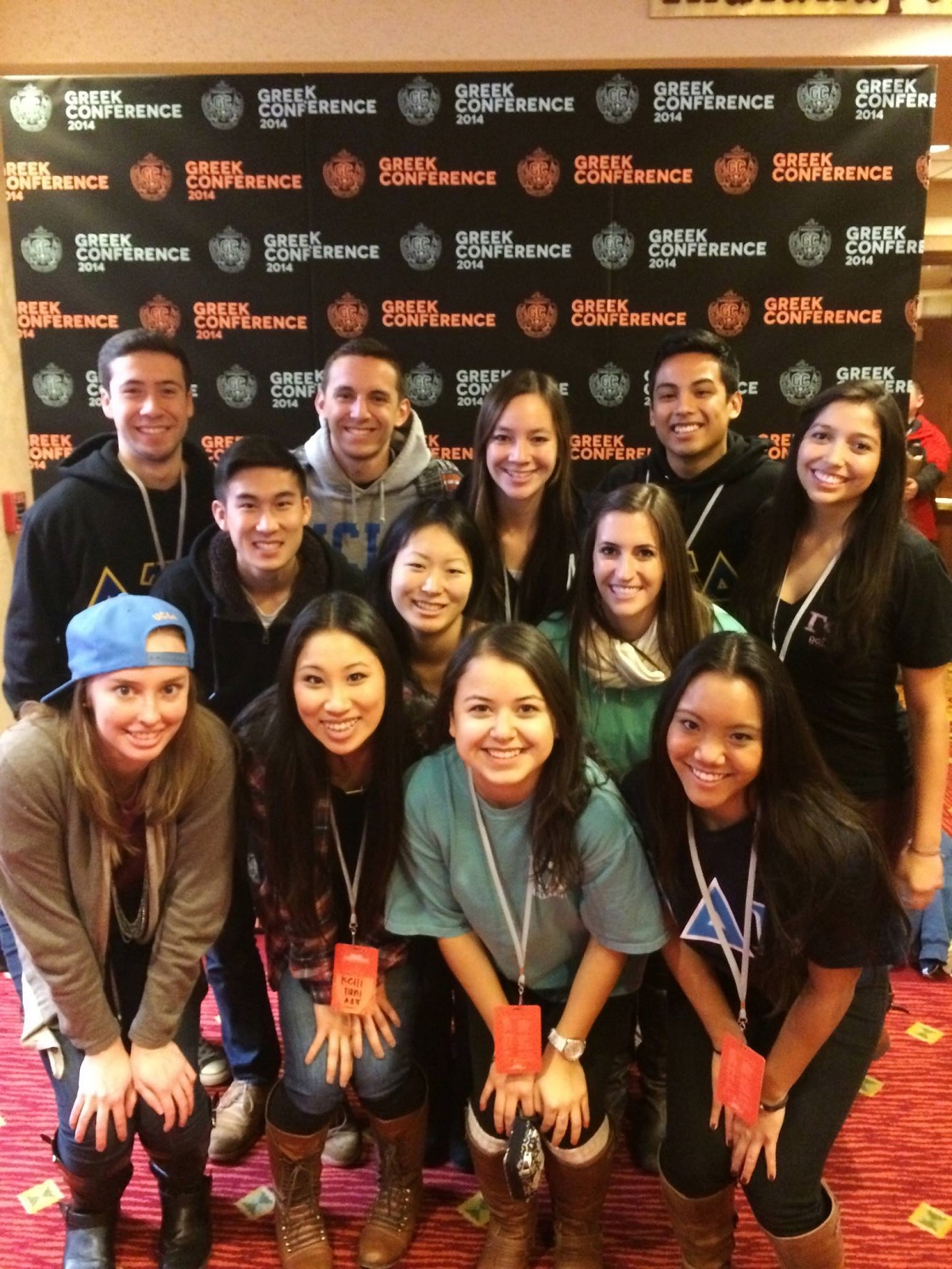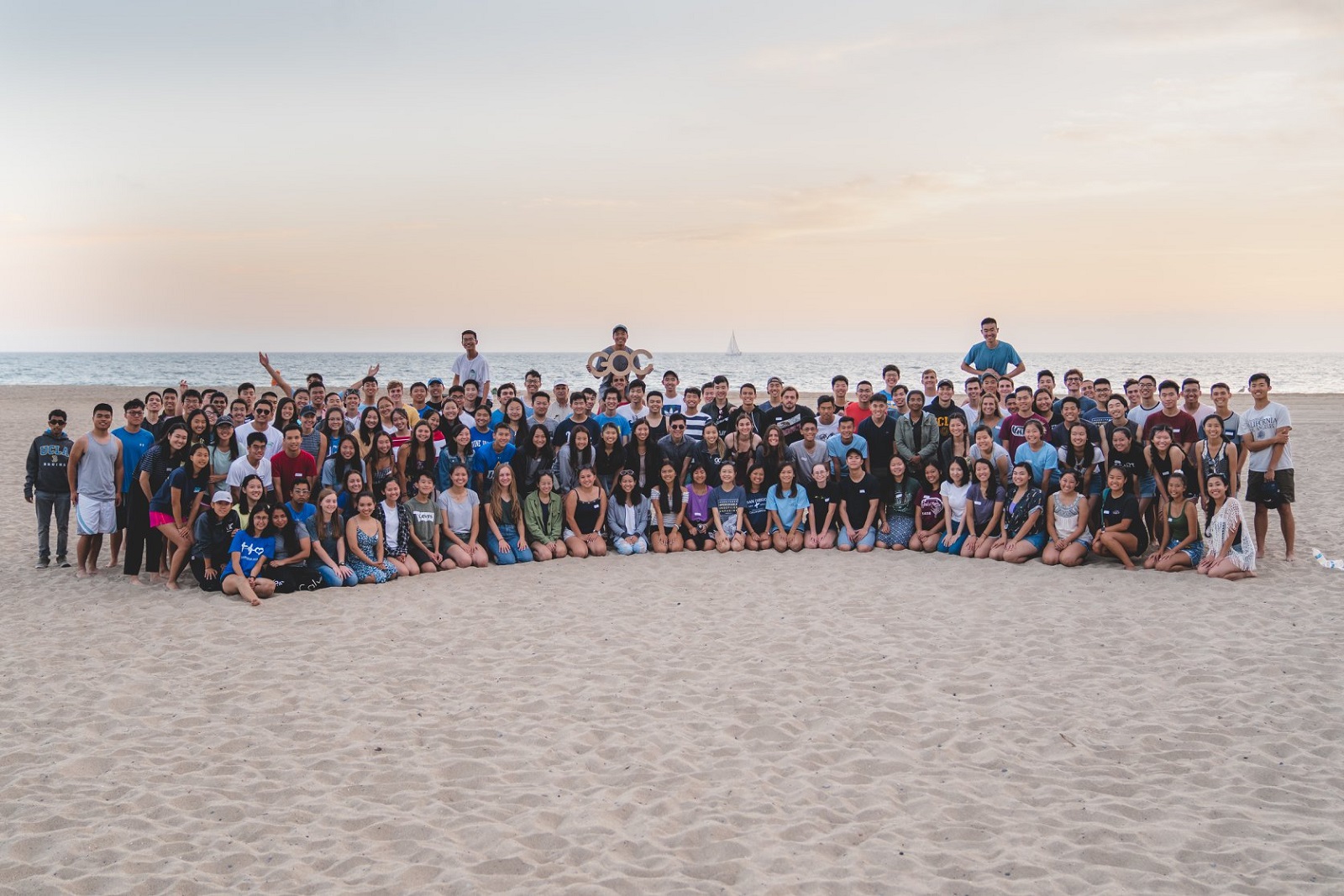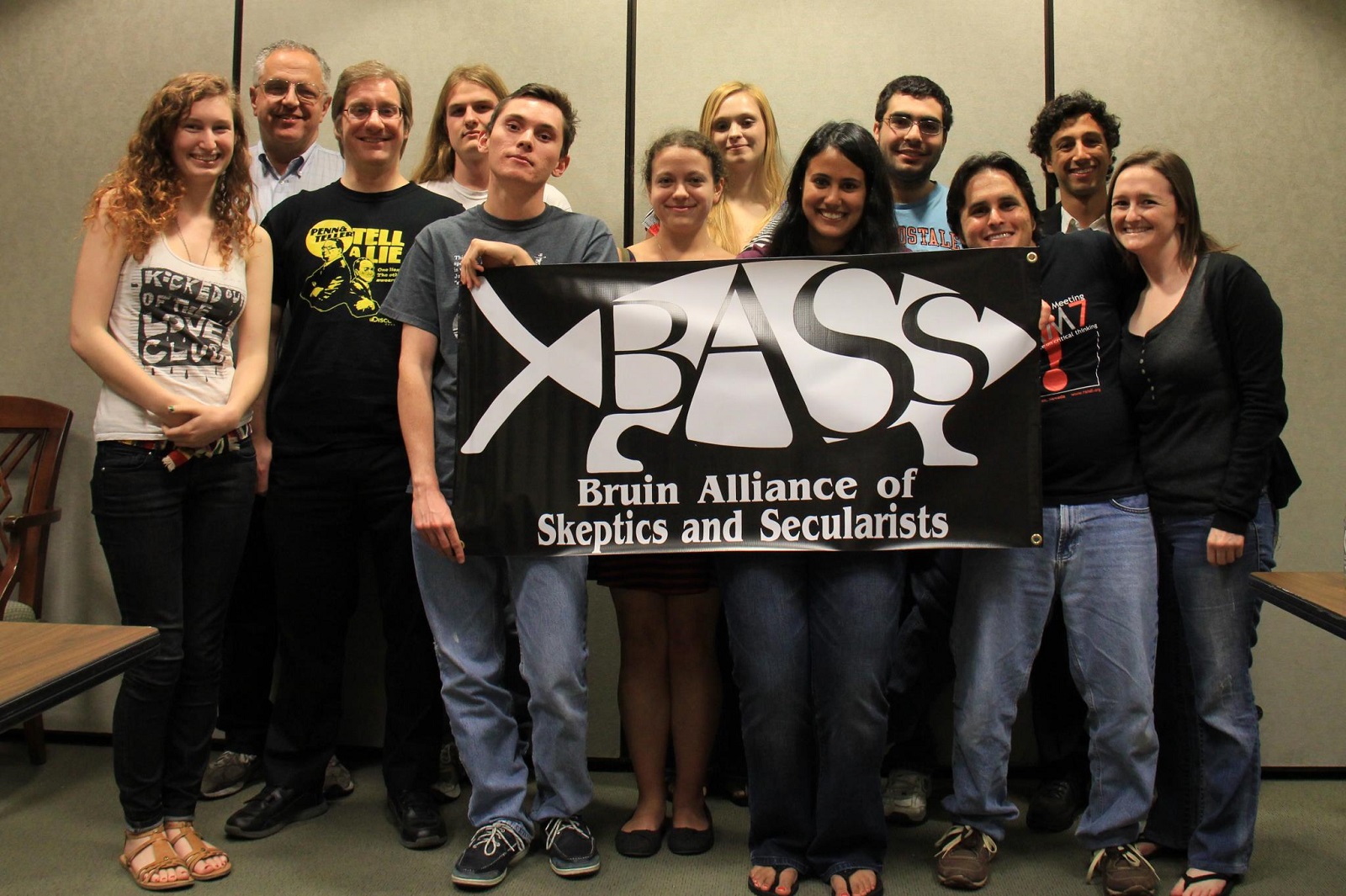Whether for culture, connection or spirituality, religion has played a role within UCLA’s community since the University was established. In this series, we aim to look at faith-based organizations on campus and how they have evolved. From historical events and changes in political climate to the last year of remote instruction, these groups have persisted and have fostered the spiritual growth of generations of Bruins.
Greek InterVarsity at UCLA

Greek InterVarsity at UCLA
The fellowship, which focuses on bringing together members of the University’s Greek life community with their Christian faith, typically used to hold Bible study spaces for members of fraternities and sororities, Samaha said. However, given COVID-19 social distancing guidelines, the pandemic led her to take a step back from these activities and focus on individual members of the fellowship.
Instead of group activities, Samaha prioritized reaching out to individuals via the phone to check in on them and focus on their mental health and discuss scripture as a lens of hope during a difficult time.
“Students were very transparent because they needed safe spaces to process and some didn't have too many people genuinely checking in on them, especially if they were struggling adjusting to living at home with parent(s) again,” she added.
For Greek InterVarsity, the ideal activity to have in the post-pandemic future would be to hold a discussion on faith with every fraternity and sorority, Samaha said, providing each chapter with a place to explore Christianity.
“Greek IV's national motto is ‘Every chapter connected, every Greek one friend away from knowing God’ and that is the hope,” she added.
Grace on Campus at UCLA
Grace on Campus, a Christian organization at UCLA for 35 years, has been constant in terms of operations and beliefs.
“But over the years, we've added quarterly and yearly traditions, such as our Week 9 and 10 songs, and playing broomball together,” said Philip Ko, a third-year mechanical engineering student.

Grace on Campus at UCLA
For more context, broomball is a game similar to hockey, except elongated plastic spoons are used instead of sticks and the puck is a large plastic ball.
“Our broomball event is an annual competition between members of different classes, where the winning class gets to sign and keep our ‘golden broomstick,’” Ko said. “Many of our members love this event because it allows us to bond and fosters fellowship with other members and the ministry as a whole.”
Aside from broomball, the group focuses on Bible study, leadership, evangelism and discipleship. Members of the organization, which is associated with the Grace Community Church in Sun Valley, Calif., would meet in the Broad Art Center on Friday nights and offer rides to church on Sundays.
Additionally, the organization held small groups, retreats and Welcome Week events before the pandemic.
“Our Welcome Week included events like a beach day at Santa Monica, and a tour of Westwood, where theme-dressed members of GOC led groups through Westwood, talked about favorite restaurants, and introduced incoming students to the area,” Ko said. “Since the pandemic, we haven't been able to hold Zoom iterations of the same event, but are looking forward to post-pandemic events, where we'll be back in person again!”
Since the pandemic’s onset, the organization has switched in-person meetings to be on Zoom and has started live-streaming a Friday night Bible study from the local church.
Naturally, the organization’s broomball event couldn’t happen this year. In light of this, members have dealt with the change by bonding even more with their own roommates and apartment mates this year, Ko said.
“The online format has put into perspective how valuable the time in person with each other has been, to spur us to use the time that we do have with one another more intentionally,” Ko said. “It's been great to still see members actively pursuing their faith despite being apart from one another, but we are excited to meet back in person as soon as possible.”
Alumni often staff the GOC, volunteering their time to mentor and give advice on everything from biblical study to professional endeavors to those part of the organization, Ko added.
Bruin Alliance of Skeptics and Secularists
The Bruin Alliance of Skeptics and Secularists, commonly known as BASS, was founded in 2005 by undergraduate student Roy Natian ’08 and three graduate students ‒ Derek Skolnik, M.S. ’05, Ph.D. ’08, Eric Radke, M.A. ’06, Ph.D. ’15, and Jody Wheeler, M.F.A. ’06.
“The Association of Secular Students stopped running because all their members graduated in the summer of 2005,” Natian said. “I don't recall how, but Eric reached out to me and the others and we organized our first meeting where we discussed what we wanted to do and brainstormed names for what our organization should be called because we were definitely not going to be ASS.”

Bruin Alliance of Skeptics and Secularists
While most members of the Alliance were atheists, some were not, added Natian, who was a mathematics student at UCLA.
“We consciously made the decision to not push atheism because that's such a 'nothing.' A lack of belief is not a good thing to base a community on,” he said. “The value of science and humanist values is what we based our community on.”
Ideas like the separation of church and state and science-based public policy were common topics for the group.
“In addition to all this, I personally wanted to make new like-minded friends,” Natian said. “I was 16 when I entered UCLA as a freshman and it was hard making friends with that age difference and not living on campus.”
However, being part of a student group seemed like a good solution, and Natian’s time at BASS proved that.
The community of BASS worked in mysterious ways for Jennifer Navis, D.D.S. ’13, as well.
“One interesting thing is that I met my husband in the club when he was president,” Navis said. “The next president, Max, also met his wife in the club. Both of us wives (eventually) became the vice president.”
Back then, the Alliance held weekly meetings in Ackerman Union, discussing specific topics. Additionally, the organization often held speaker events and panels, aiming for one big event each year, Natian said.
“I'm pleasantly surprised BASS has stuck around for over a decade,” he said. “When I was involved, I participated in student leadership conferences with the Secular Student Alliance and Center for Inquiry. With the connections I made, I was able to organize more events with speakers.”
Things have definitely changed in light of the pandemic, however. COVID-19 has caused an end to all volunteer activities and made it difficult to stay in touch with group members, said Baylee Brown ’20.
“Due to members living across the U.S., time zone differences make it difficult to meet even over Zoom on a regular basis,” she said.
Alumni also tend not to be involved after they graduate, Natian said, adding that while he still participated a few years after he finished his degree, most of his interaction with BASS now is limited to the Facebook group.
If you have information to share about Bruin Faith Groups, send us a comment at ConnectFeedback@alumni.ucla.edu.